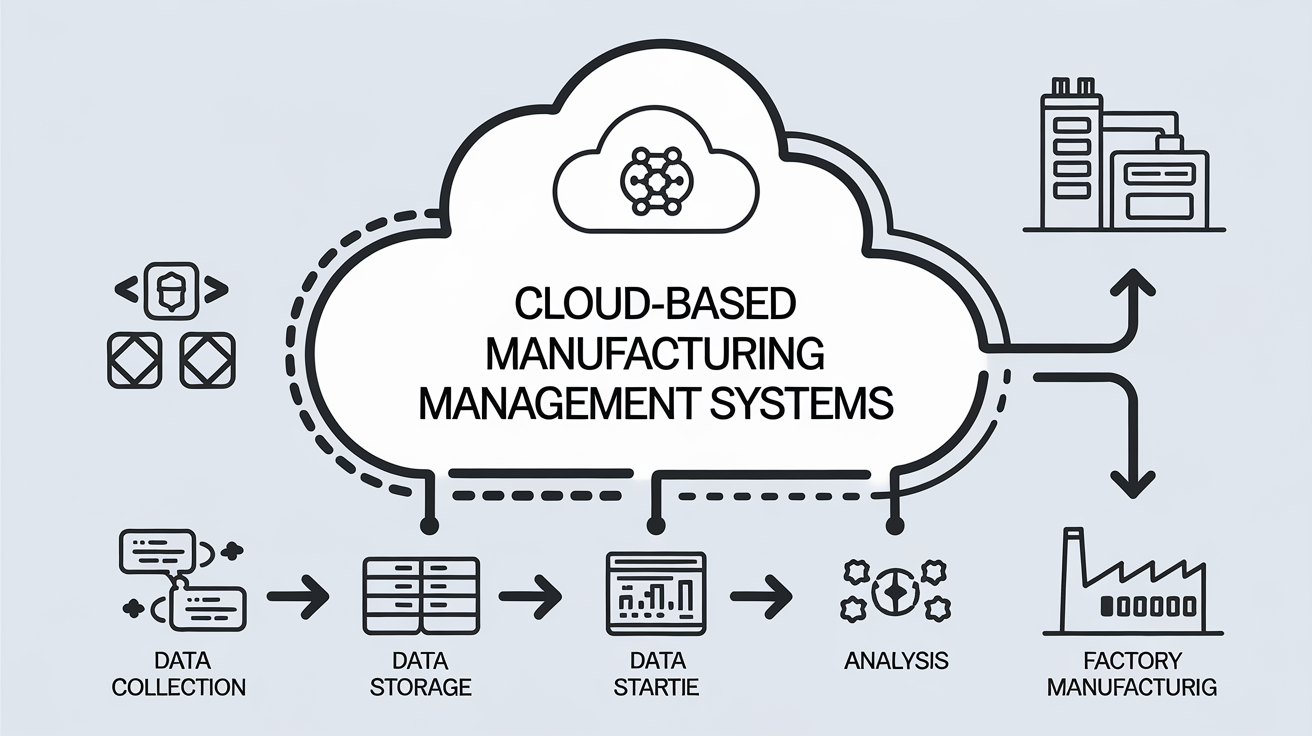
With the rapid changes in the manufacturing industry, managers and enterprises increasingly rely on cloud-based management systems to streamline their operations, cut costs, and become more effective. An entrepreneur’s decision of which system to adopt could be the right selection, which often means successfully scaling operations. There are many options available, though; how can you be certain which one will fit best?
We’ll help you find the right cloud-based management system. Get a lot of information from this guide, covering features, benefits, comparisons, etc. Read it to make an informed decision.
Benefits of a cloud-based solution:
- Cost savings: No heavy investments in hardware or IT maintenance.
- A truly scalable option: Just as you can easily throw in another work cell when orders pick up, you expand it.
- Real-time data access: With information at your fingertips, you can make those decisions.
- Automation: Most sources noted this was a high area of concern for errors and inefficiency for the manual touch.
- Integration: This can connect with other tools such as accounting, CRM, ERP, etc.
- Security: Robust cybersecurity examples available from their cloud provider to safeguard the confidentiality of sensitive data.
- Flexible access: Run your operations from anywhere, a key to flexibility for entrepreneurs.
Top Cloud-Based Manufacturing Management Systems for Entrepreneurs
1. NetSuite ERP
Ideal for: Medium to large manufacturers
Key Features:
• Full-fledged ERP with financials, inventory, and supply chain management
• Workflow and reporting automation
• Analytics for AI-driven business insight
• Seamless integration with e-commerce modules
• Customizable dashboards, real-time KPI tracking
Pros:
• All-in-one complete system
• Can scale for growing companies
• Robust data protection and compliance levels
Cons:
- High pricing compared to the alternatives
- Complex implementation requiring training
2. Odoo Manufacturing
Best for: Small to medium manufacturers.
Key Features:
- Open-source and highly customizable
- Production and inventory tracking
- Links sales, and spent time in CRM and HR modules.
- Modular structure that allows for specific functionalities
- Deployment options in ES and cloud.
Pros:
- Economic and affordable solution.
- Easy-to-use interface.
- A sizeable community for support and add-ons.
Cons:
- Requires technical knowledge for customization.
- Limited customer support in the free version.
3. Katana MRP
Best for: Small manufacturers and startups
Key Features
- Real-time tracking of inventory
- Production planning and automation
- Integration with e-commerce like Shopify, WooCommerce
- Drag-and-drop production planning
- Multi-channel sales management
Pros:
- Very simple and easy to use
- Feasible prices for small businesses
- Excellent inventory control and automation
Cons:
- Advanced features are not many
- Not very suitable for big manufacturers
4. Fishbowl Manufacturing
Best for: Strong inventory management needs
Key Features:
- Warehouse and inventory tracking
- Production planning and automation
- Integration with QuickBooks for accounting
- Barcode scanning for inventory control
- Work order management and forecasting
Pros:
- Solid inventory management tools
- Affordable for small and mid-sized businesses
- Solid accounting integration
Cons:
Limited cloud capabilities.
Somewhat outdated interface.
5. MRPeasy:
Best for small manufacturers on tight budgets.
Key Features:
- An affordable cloud-based MRP system for lower manufacturing requirements.
- Production planning and tracking.
- A simple, easy-to-use .
- Quality control and compliance tracking.
Pros:
- Solution within the budget.
- Setup is very straightforward and use is simple.
- Great automation features for small businesses.
Cons:
- Basic compared to larger ERP systems.
- Limited customer support channels.
Also read : Entrepreneurial Success in West Bengal’s Manufacturing Sector
How to Choose an Appropriate Cloud-Based Manufacturing System?
When selecting a cloud-based manufacturing management system, ensure the following factors:
Business Size and Needs: Katana or MRPeasy for small businesses; NetSuite for larger manufacturers.
Budget: Odoo offers cost-effective open-source while NetSuite is a premium solution.
Scalability: Rather put in place a system that grows together with your business.
Ease of Use: Let it be intuitive and friendly for the users.
Integration: This shall suit with the other software like Accounting, CRM or even E-commerce.
Customer Support: The company should be an outstanding provider with reliable support and training resources.
Security Features: Should offer encryption, backup, frequent backups, and standards with industry compliance.
Customization: Allow having to assign additional functionalities per business.
Mobile Access: It should be easily accessible on mobile for management on the road.
Data Backup & Disaster Recovery: Provide backup solutions with minimal data loss.
Future Trends in Cloud-Based Manufacturing Management
- AI & Machine learning: Analytics that have been powered by AI will enhance production efficiency as well as predictive maintenance.
- IoT: Smart sensors will improve automation and real-time monitoring.
- Blockchain for Supply Chain Tracing: This technology will reduce fraud and aid in tracking materials.
- Augmented Reality (AR) based Remote Management: AR tools will allow managers to oversee production remotely.
- Further Customization & Modular Systems: More vendors will go to provide flexible, industry-specific solutions.
- 5G Connectivity: Faster NBN speeds will improve the performance and response speed of the system.
- Sustainable and Green Manufacturing: Cloud systems will continue to support eco-friendly initiatives through better tracking of resources.
- Predictive Maintenance & Smart Alerts: Enable AI for the scheduling of maintenance automatically to reduce downtime.
Typical Problems in Cloud-Based Manufacturing Management Systems
Of course, any type of online system has its challenges even if it is an ideal one. Such challenges as:
- Internet Dependency: Access is limited without the Internet.
- Data Security Concerns: Sensitive data needs strong safety measures to keep them away from loss or attack.
- Initial Learning Curve: They will have to teach themselves to adjust to new technology.
- Customization Costs: High for some advanced customization aspects.
- Vendor Lock-in: Switching of vendors has its complications because of few data migration options.
Closing thoughts
Cloud-based manufacturing management systems, whether they are simple MRP systems such as Katana or full ERP suites like NetSuite, are the best way to manage various production aspects such as inventory and supply chain. Evaluate the size of your company, the budget, and the operational requirements, and you will be ready to adopt the ideal approach toward managing your business to meet production goals.






